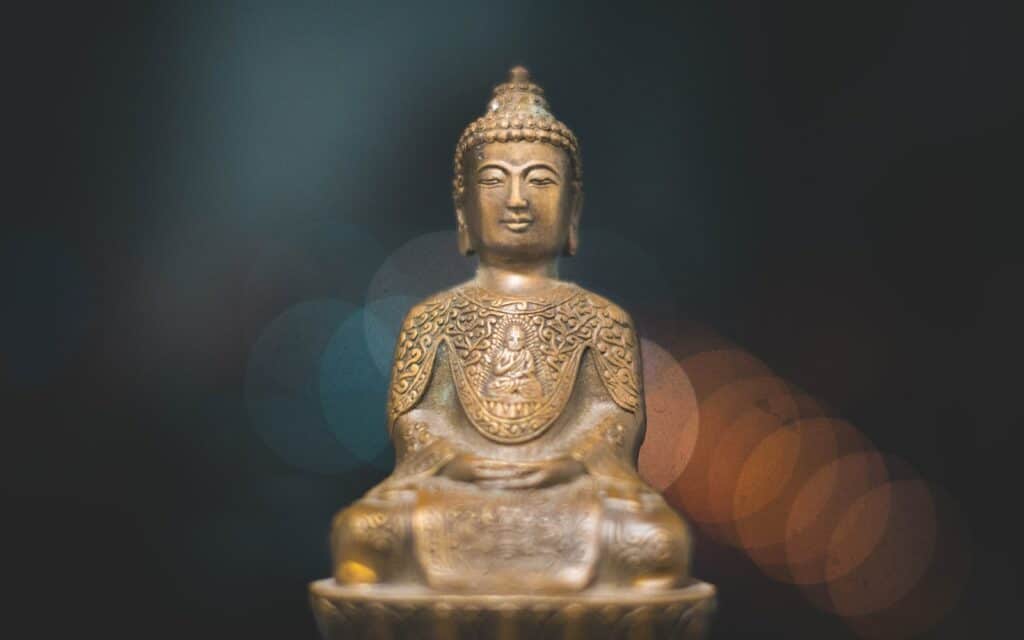Karma is a central concept in Buddhism that refers to the law of cause and effect. According to Buddhist teachings, every action has a consequence, and the intention behind the action determines the quality of those consequences. Positive actions lead to positive consequences, while negative actions lead to negative consequences. This belief in karma is closely linked to the Buddhist understanding of rebirth, as it is believed that the consequences of one’s actions continue into future lives.
In Buddhism, karma is not seen as a form of punishment or reward dealt out by a higher power but rather as a natural law that operates independently of any divine intervention. This understanding of karma is similar to the law of gravity in that it operates according to its own rules and is not subject to external influence. Buddhists believe that by understanding the law of karma and making positive choices, individuals can break the cycle of suffering and achieve enlightenment.
The concept of karma has been an important part of Buddhist philosophy for centuries, and it continues to be a central tenet of the religion today. Whether one is a devout Buddhist or simply interested in learning more about the religion, understanding karma is essential to understanding the fundamental principles of Buddhism.
Understanding Karma in Buddhism
Definition of Karma
Karma is a central concept in Buddhism, and it refers to the intentional actions that individuals perform. According to Buddhist teachings, every action has a consequence, and these consequences can be positive, negative, or neutral. Karma is not seen as a punishment or reward, but rather as a natural law of cause and effect that operates in the universe.
Cause and Effect
The law of karma is a law of cause and effect, and it is based on the idea that every action has a consequence. In other words, the actions that individuals perform will have an impact on their future experiences. This means that positive actions will lead to positive consequences, while negative actions will lead to negative consequences.
Intention and Action
In Buddhism, karma is defined as volitional or willful action. This means that the things that individuals choose to do, say, or think set karma into motion. It is not just the physical actions that matter, but also the intentions behind them. The motives and mental states that underlie an action are just as important as the action itself.
Fruit and Result
The consequences of karma are known as phala, which means “fruit” or “result.” These fruits can be experienced in this lifetime or in future lives, depending on the nature of the action. Positive actions will lead to positive results, while negative actions will lead to negative results. However, it is important to note that karma is not deterministic, and individuals have the ability to change their karma through their actions.
Overall, karma is a complex concept in Buddhism that involves the interplay of intention, action, and consequence. It is a natural law of cause and effect that operates in the universe, and it is based on the idea that individuals have the ability to shape their future experiences through their actions. By understanding the law of karma and practicing positive actions, individuals can move closer to enlightenment and liberation from suffering.
The Law of Karma
Karma is a fundamental concept in Buddhism that refers to the law of cause and effect. According to this law, every action, whether good or bad, will have consequences in the future. The concept of karma is closely related to the idea of natural law, which governs the universe and all beings within it.
The Three Types of Karma
There are three types of karma in Buddhism: wholesome, unwholesome, and neutral. Wholesome karma is created by performing good deeds, such as acts of kindness, generosity, and compassion. Unwholesome karma is created by performing negative actions, such as acts of greed, delusion, and anger. Neutral karma is created by performing actions that have no moral significance, such as breathing or walking.
The Effects of Karma
The effects of karma can be experienced in this present life or in future lives. Karma can affect a person’s physical and mental well-being, as well as their circumstances and experiences. For example, a person who performs good deeds may experience happiness and success in this life and in future lives, while a person who performs negative actions may experience pain and suffering.
The Law of Karma in Practice
In order to practice the law of karma, Buddhists must be mindful of their actions and intentions. They must strive to perform wholesome actions and avoid unwholesome actions, as well as cultivate positive qualities such as kindness, wisdom, and compassion. Buddhists also believe in the power of rituals and merit-making activities to create positive karma and improve their future circumstances.
Overall, the concept of karma in Buddhism is complex and multifaceted, and it has been the subject of much study and debate among Buddhist scholars and practitioners. However, the basic principles of karma are clear: every action has consequences, and we must be mindful of our actions and intentions if we wish to create positive karma and improve our lives.
Conclusion
Karma is a fundamental concept in Buddhism, and it plays a crucial role in shaping the lives of individuals. According to Buddhist philosophy, karma is the law of moral causation, which means that every action has a corresponding consequence. The quality of the action determines the nature of the result, and the result of the action may manifest in this life or in future lives.
Buddhists believe that karma is not predetermined or fatalistic. Instead, individuals have the power to shape their karma through their actions, thoughts, and intentions. By cultivating positive intentions and actions, individuals can generate positive karma and improve their future lives. Conversely, negative actions and intentions can generate negative karma and lead to suffering.
One of the key teachings of Buddhism is that individuals can break the cycle of suffering by understanding the nature of karma and cultivating positive actions and intentions. By doing so, they can create positive conditions for themselves and others and move towards the ultimate goal of liberation from suffering.
Overall, the concept of karma in Buddhism is complex and multifaceted, and it requires careful study and reflection to fully understand its implications. However, by embracing the principles of karma and cultivating positive actions and intentions, individuals can transform their lives and create a more compassionate and harmonious world.













